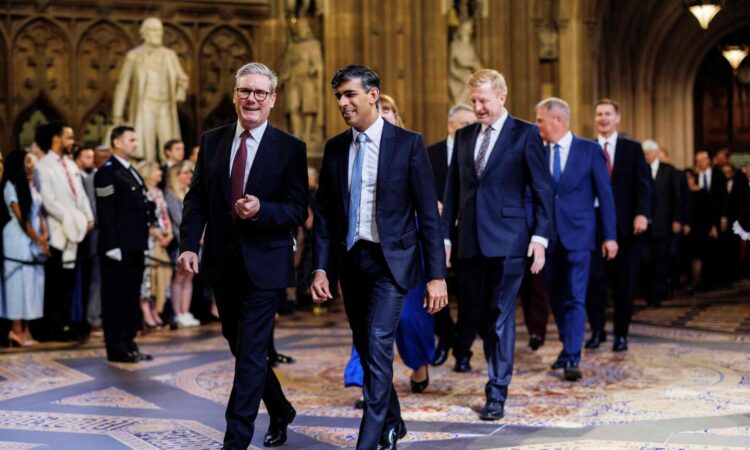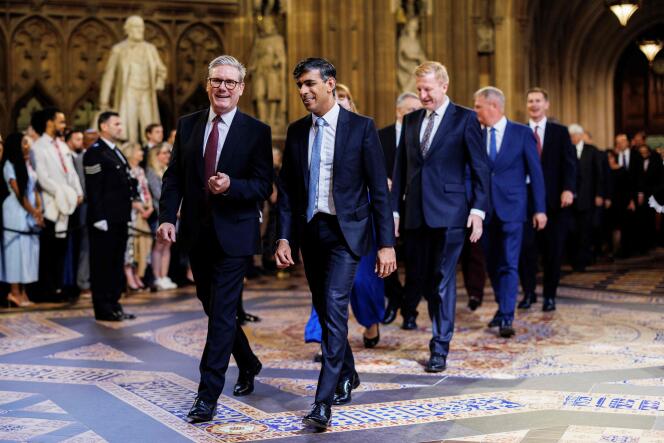

Since his appointment to 10 Downing Street on July 5, Keir Starmer has been repeating it like a mantra: “We’re hitting the ground running.” Less than two weeks after his election victory, which put an end to 14 years of Conservative government, the new British prime minister is doing his utmost to impose his mark quickly and give the impression of a government ready to reform. “There is no time to waste,” he said, “the work of change begins now.”
On Wednesday, July 17, the formal opening of Parliament enabled him to present a thick agenda, containing 40 bills for the coming year, almost twice as many as the last agenda of the previous head of government, Rishi Sunak, in fall 2023. In keeping with tradition, King Charles III made his way to the House of Lords, ermine cape over his shoulders and imperial crown on his head, with its 2,868 diamonds, 273 pearls, 17 sapphires and 5 rubies. In a formal tone, he read out the program of “his” government. One sentence from the “King’s Speech” summed up Starmer’s project: “Ensuring economic growth will be fundamental.”
While other important reforms have been announced – the abolition of hereditary peers in the House of Lords, the renationalization of the railways and the “renewal” of relations with the European Union – Starmer’s main objective is to turn the economy around. During the election campaign, he promised to be on the side of the “wealth creation,” even if it meant annoying the left wing of his party.
The UK has been in quasi-stagnation for some 15 years, with wages (adjusted for inflation) rising by just 6% over the whole period, and the recent inflation shock putting purchasing power at the heart of British concerns. In 2023, growth was just 0.1%, and GDP per capita fell by 0.7%. The economic rebound at the beginning of this year is far from erasing this mediocre record.
Limited room for maneuver
To try and halt this slow decline, Starmer has set his sights on one priority reform: liberalizing planning permission, whether for real estate or major infrastructure projects. The UK is currently plagued by an inability to launch major building projects, with laws making it relatively easy for local landowners to oppose projects close to home. The fiasco of a high-speed train line between London and the north of England is the best illustration of this: The project has been scaled back twice, with the link to Leeds and then Manchester being canceled, due to cost overruns and repeated delays. The trainline now ends in Birmingham.
You have 56.92% of this article left to read. The rest is for subscribers only.






